DR Horton Inc
Latest DR Horton Inc News and Updates
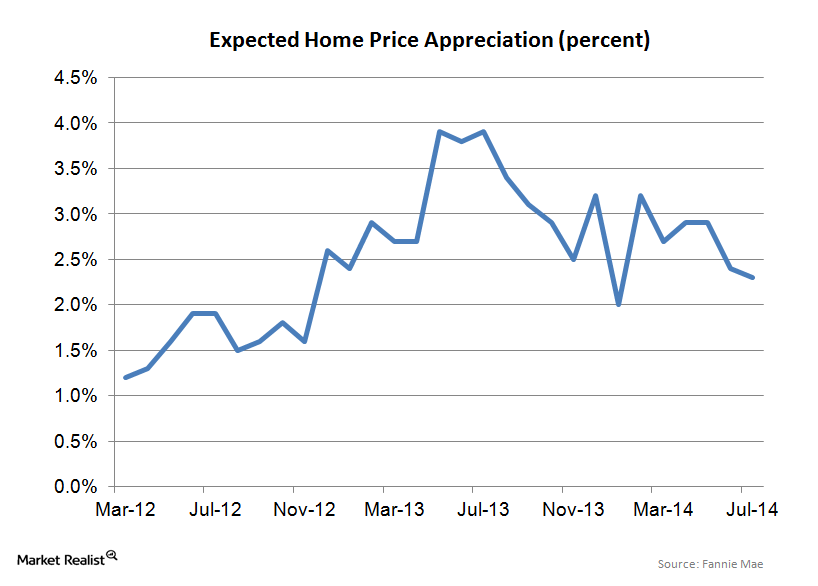
Consumers are tempering their home price appreciation expectations
The 2.3% home price expectation is much lower than the 6%–7% forecast we’re seeing out of the National Association of Realtors and the mid single-digit forecast we’re seeing from most Wall Street professionals.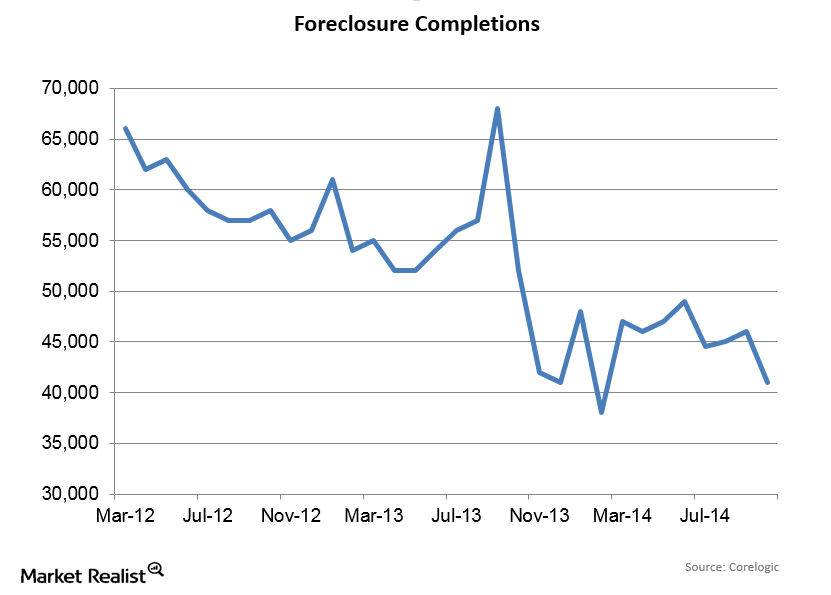
Foreclosure Completions Drop In October
Since foreclosures represent a process that may or may not wind up with the bank owning the home, foreclosure completions are a better indicator of foreclosure activity than foreclosure starts.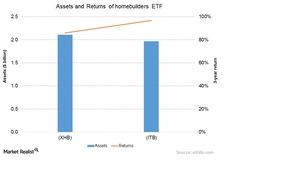
Why you should invest in homebuilder ETFs like XHB and ITB
ETFs present another investment avenue. Apart from pure homebuilder ETFs, there are many other ETFs that offer exposure to homebuilders.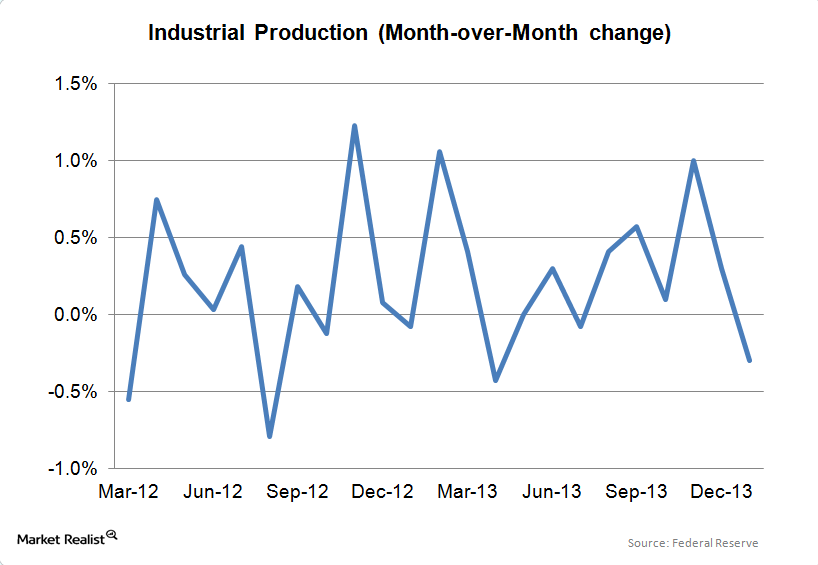
A decline in manufacturing causes industrial production to fall
Up until January, industrial production and manufacturing production had been accelerating, so it is premature to draw any major conclusions from one disappointing report.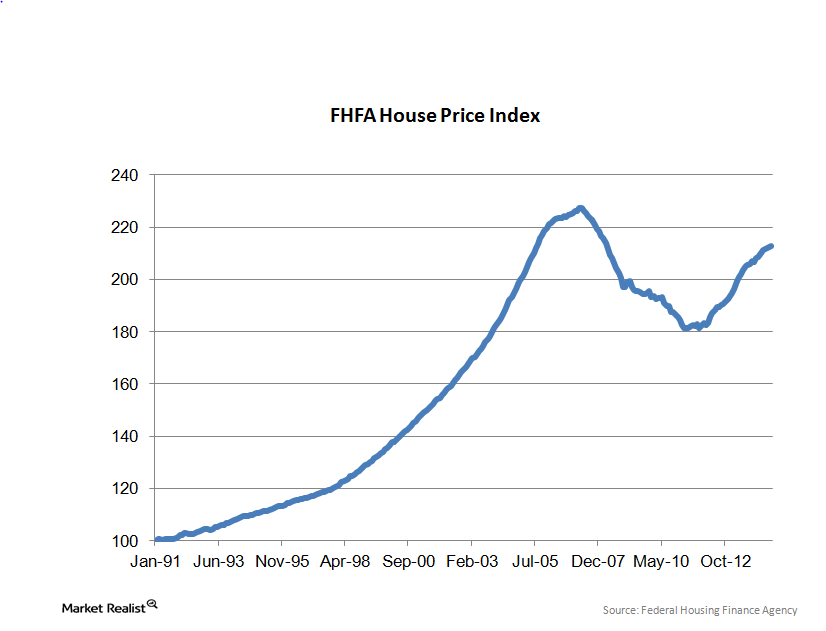
Must-know: Why home-price appreciation is leveling off
In July, home prices increased 0.1% month-over-month. They’re up 4.4% year-over-year (or YoY). Prices are now within 6.5% of their April 2007 peak. They correspond to the levels in July 2005. Real estate values drive consumer confidence and spending. They have an enormous impact on the economy.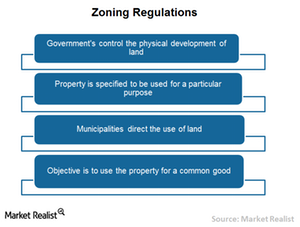
How Zoning Regulations Impact City Development
Zoning is the way that governments supervise land development and the kinds of uses each individual property may be directed toward for the public interest.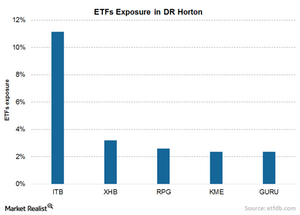
How to Invest in D.R. Horton through ETFs
D.R. Horton sees allocation in major homebuilding sector-specific ETFs like the iShares Dow Jones US Home Construction Index Fund (ITB).
Why Building Permits Didn’t Change in December
For 2017, 1,263,400 housing units have been authorized by building permits—a 4.7% increase from 1,206,600 housing units in 2016.
Should Investors Be Concerned about Fewer Building Permits?
In November 2017, housing units (XHB) authorized by building permits were at a seasonally adjusted rate of 1.298 million—a decrease of 1.4% from October.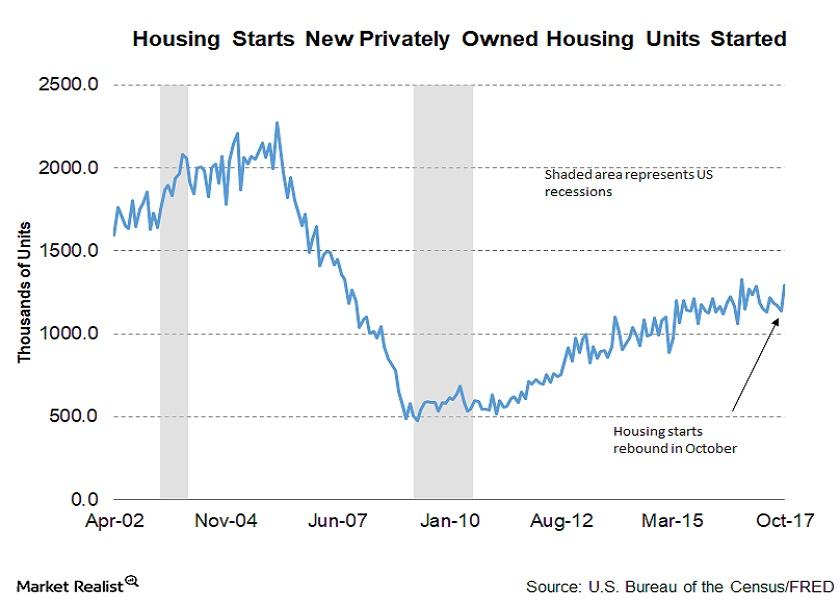
Analyzing Housing Starts in October 2017
In October 2017, housing starts rebounded sharply from the slump in September. October housing starts beat the market’s expectations.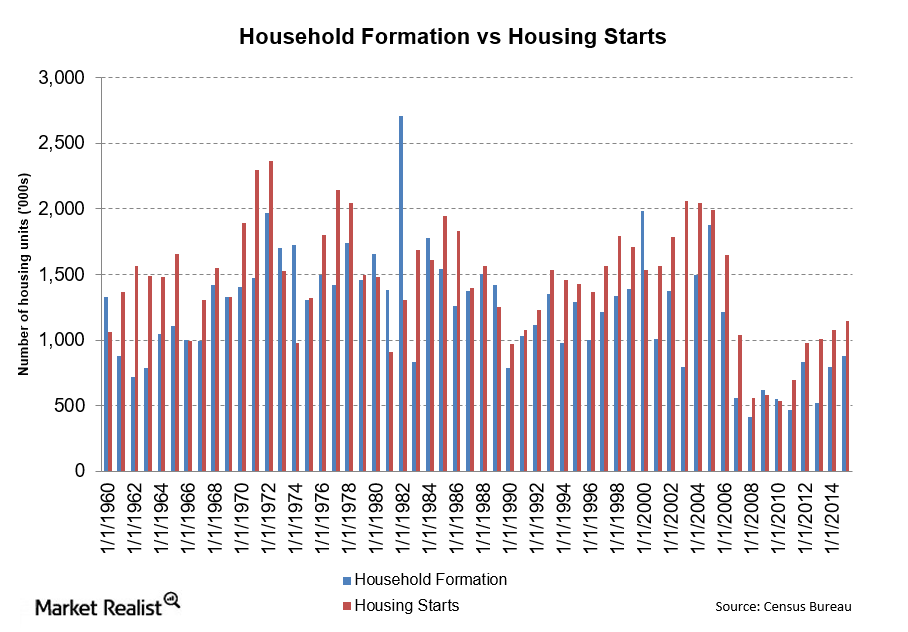
Limited Supply: Analyzing Housing Starts and Household Formations
There was a big fall in household formation in 2008. In 2005, household formation peaked at 1.9 million. By 2008, that number was just over 400 million.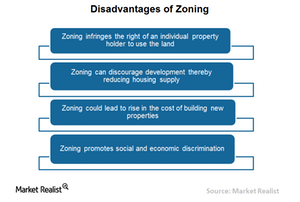
How Zoning Can Be a Hindrance to Housing Market Growth
Zoning restricts the freedom of property holders and REITs to use land however they want, given their specific development and investment interests.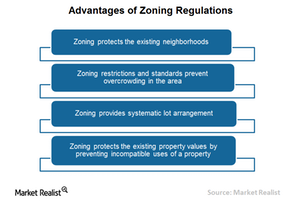
How Zoning Regulations Benefit Communities
Zoning protects existing property values by preventing incompatible uses of a property. It also protects residential properties from commercial development.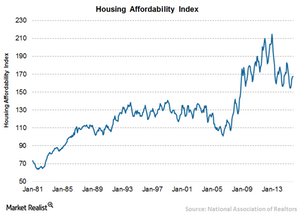
What Are the Factors Driving Housing Affordability?
Housing affordability took a beating in July 2015 after reaching its high in January 2013. The higher ratio of the home affordability index signifies relatively higher home affordability to buyers.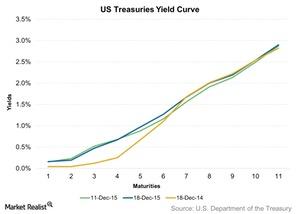
Treasury Yield Curve Flattened after US Interest Rate Hike
The US Treasury yield curve was flat for the week ended December 18, 2015, as short-term yields fell. Medium- to long-term yields rose after US interest rates rose by 25 basis points.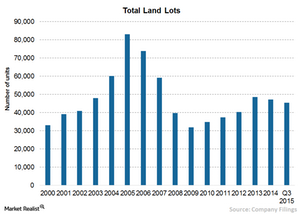
Understanding Toll Brothers’ Land Acquisition Strategy
Toll Brothers’ use of land option agreements reduces financial risks associated with long-term land holdings. The land acquisition strategy of other homebuilders also involves option contracts.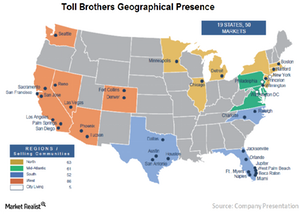
A Geographic Overview of Toll Brothers’ Homebuilding Operation
Toll Brothers (TOL) has a very geographically diverse homebuilding operation in the United States. The company has a presence in 50 markets, spanning 19 states as well as the District of Columbia.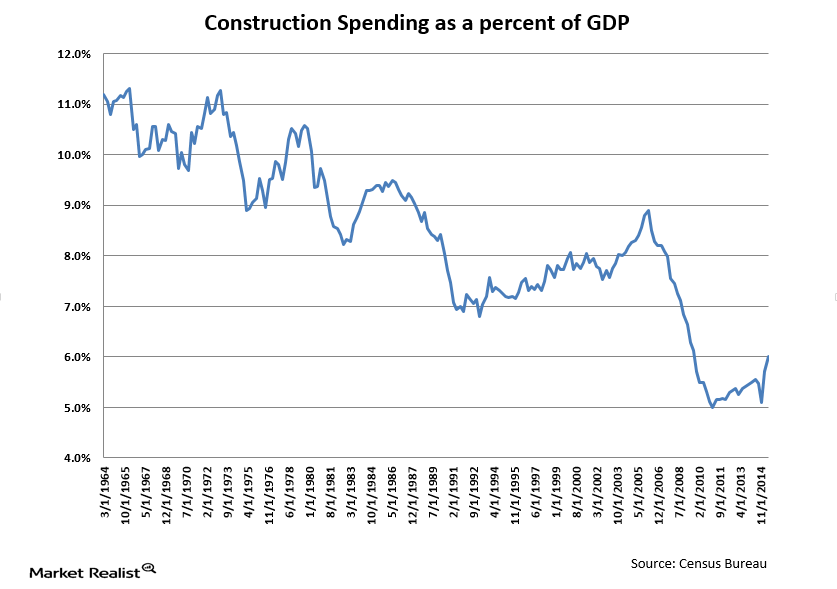
The Importance of Construction Spending to GDP
Historically, construction spending has led economies out of recessions. This didn’t happen in the most recent recession, however, because of the overhang from the real estate bubble.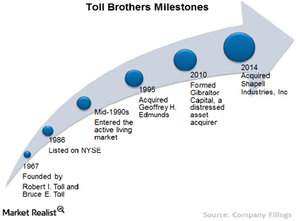
Investing in Toll Brothers: A Must-Know Company Overview
Toll Brothers is primarily engaged in the development of attached and detached homes in luxury residential communities. It’s a dominant player in the luxury segment with very few comparable competitors.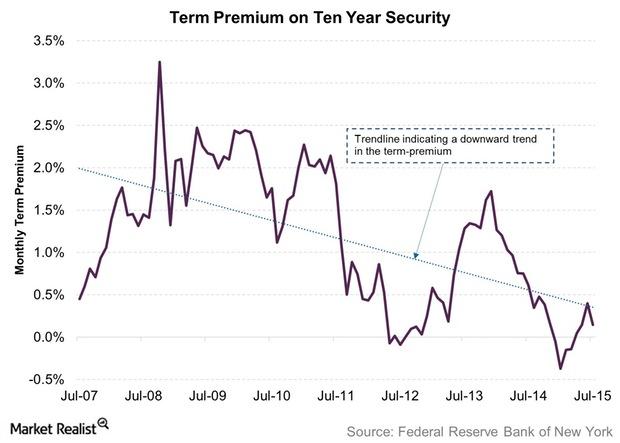
What Does US Term Premium Indicate?
Over an eight-year period, the term premium on a ten-year US security rose to 3.25% in October 2008. It saw a low of -0.37% in January 2015.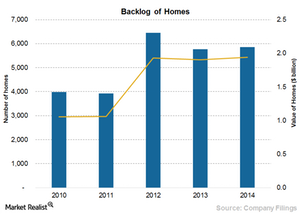
Why PulteGroup Saw a Modest Rise in Sales Order Backlog in 2014
Sales order backlog represents homes under contract but not closed or delivered. For orders in backlog, the company receives a customer contract and deposit, which may or may not be refundable.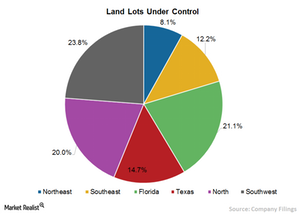
Understanding PulteGroup’s Land Acquisition Strategy
PulteGroup (PHM) mainly acquires land to complete sales of housing units within 24 to 36 months from the date of opening a community.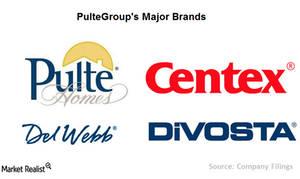
What Is PulteGroup’s Market Segmentation Strategy?
The move-up buyers in Pulte Homes communities tend to place more premium on location and amenities.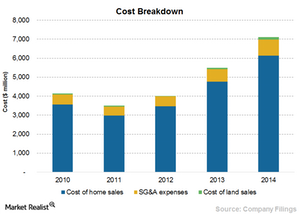
What Was D.R. Horton’s Cost Structure Breakdown in 2014?
Cost of homes sold is the highest of the company’s costs at 78.1%, followed by SG&A at 10.6%, and cost of land sold at 1.6%.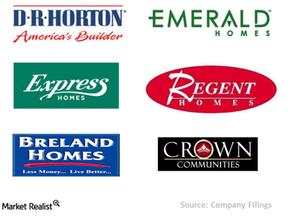
What Is D.R. Horton’s Market Segmentation Strategy?
As part of its market segmentation strategy, D.R. Horton launched a variety of different brands, including D.R. Horton, America’s Builder, Express Homes, and Emerald Home.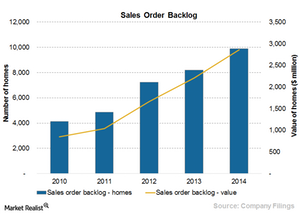
D.R. Horton’s Huge Sales Order Backlog Ensures Sustainable Growth
Pretty much all of the homes in D.R. Horton’s sales order backlog at the end of fiscal 2014 are likely to close in fiscal 2015, which will boost the company’s revenues.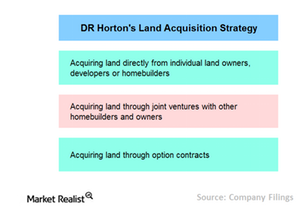
Understanding D.R. Horton’s Land Acquisition Strategy
D.R. Horton directly acquires almost all of its land and lot positions. The company has initiated few joint ventures for land acquisitions.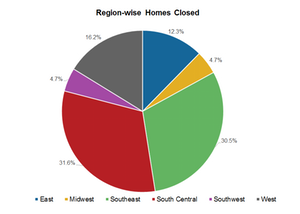
An Overview of D.R. Horton’s Homebuilding Segment
The homebuilding segment of D.R. Horton, which mainly focuses on single-family attached and detached homes, is divided into six divisions.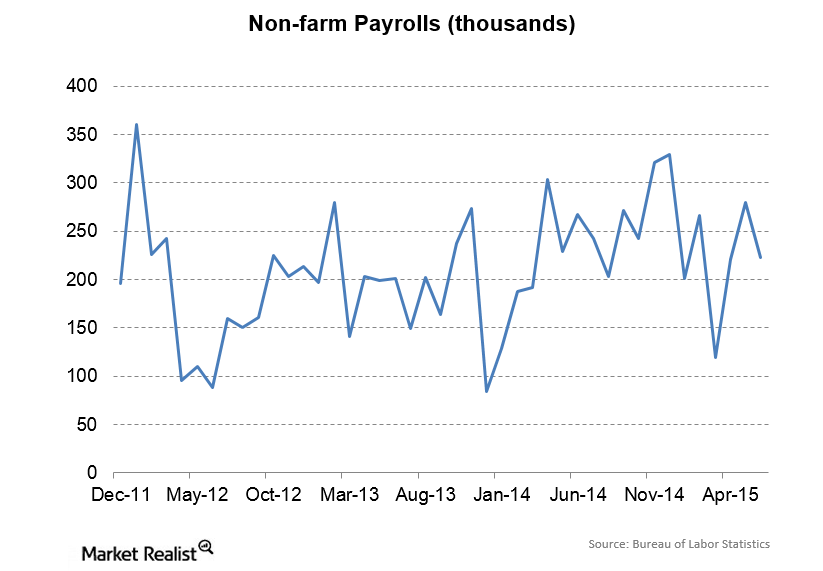
June Payrolls Increase
Private payrolls increased by 223,000 in June, while government jobs growth was flat and manufacturing employment barely increased.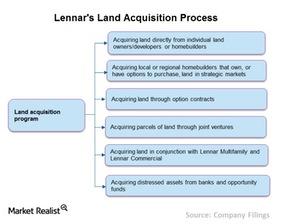
Lennar’s Diversified Land Acquisition Process
Lennar’s land acquisition process includes acquiring land from individual land owners, developers, or homebuilders. Lennar also creates JVs to acquire land.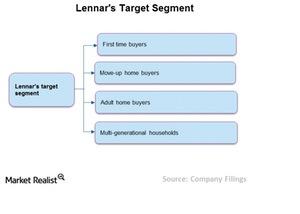
Market Segmentation in Lennar Corporation
Lennar’s market segmentation is primarily first-time, move-up, and active adult homebuyers in areas ranging from urban infill to golf course communities.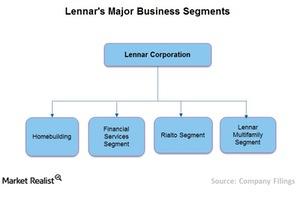
Lennar’s Four Main Business Segments
Lennar’s (LEN) four main business segments include Homebuilding, Lennar Financial Services, Rialto, and Lennar Multifamily.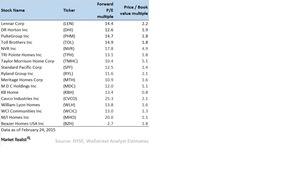
Valuing homebuilders: Buying at the right price
Homebuilders earn substantial profits buying land at a cheaper rate, allowing it to appreciate over time, constructing a house on it, and selling it.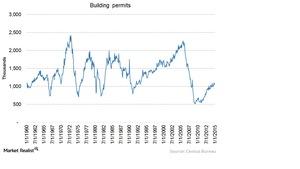
Understanding building permits and their impact on homebuilders
Along with housing starts, building permits are also a leading indicator of the health of the US housing market.
